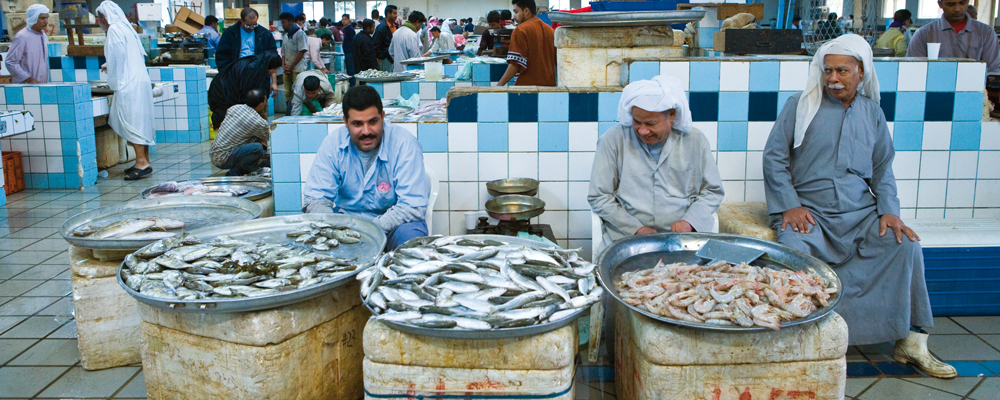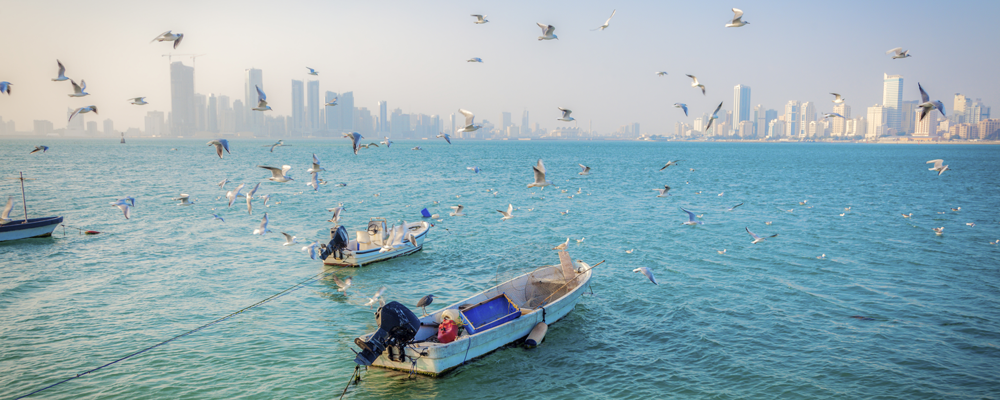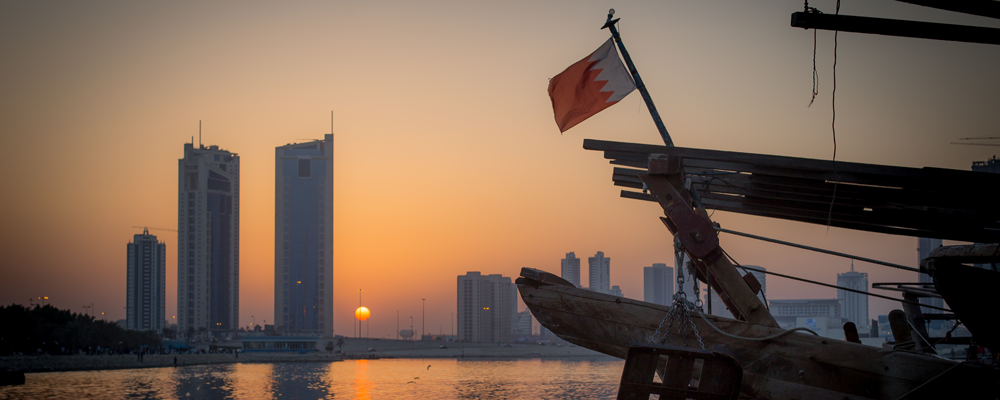In This City is a challenge to journey with us in prayer for 12 key cities in 2020. We ask you to commit to praying for fruit that will ripen and bear the seeds for mature, vibrant, and multiplying churches across the Arab world.
Introduction
Dubbed one of the ‘Pearls of the Persian Gulf,’ Bahrain’s capital has been an important commercial centre for centuries. Hugging the north coast of the country’s main island, Manama’s strategic and sheltered location has made it one of the most important ports in the Persian Gulf. The small archipelago’s traditional economy was built on pearling, fishing, and boatbuilding. Then, striking black gold in 1932 revolutionised the city, accelerating its development and prosperity. Even so, dhows (traditional sailing vessels) still line the city’s shore.
Today, Manama is a markedly modern metropolis. It is considered one of the more liberal and pluralistic cities of the Arabian Peninsula. The King Fahd Causeway – spanning 15 miles | 24 kilometres – allows multitudes of Saudis to make weekend trips into the capital, where they enjoy its bars and flourishing food and arts scene. Amid the towering glass and glistening skyscrapers, you will find the remnants of an ancient, bustling town. The commotion of Manama’s Souq (marketplace) echos back through the centuries, melding with today’s multicultural cuisine. This charming blend has led to a remarkable growth in tourism over the past few years. It’s also a popular destination for expats; only about a third of Manama’s population is Bahraini.

About Manama
Population: 157,000 (Manama), 1.6 million (Bahrain)
Languages: Arabic, English, Farsi, Urdu
Religions: Muslim 74%, Christian 9%, Jewish 0.1%, other 17%. Shia account for perhaps two-thirds of the population, while the king is Sunni. Efforts are being made to encourage Sunnis (mostly Yemeni and Pakistani) to relocate to Bahrain with some success.
Ethnic groups: Bahraini 46%, Asian 45.5%, other Arab 4.7%, African 1.6%, European 1%, other 1.2% (includes Gulf Co-operative country nationals, North and South Americans, and Oceanians)
Geographical size: 30 km² | 10 mi²
Location: Northeast Bahrain
Key historical events: Evidence of human settlement on the northern coastline of Bahrain dates back to the Bronze Age. The name Al Manamah (a place of rest or dreams) was first used in 1345. Manama’s first foreign invasion was by the Portuguese in 1521. In 1602, their rule was cut short by the Persians, who developed the local pearling trade. In 1783, Manama was invaded again, and the Al Khalifas took control. They continue to rule to this day. Through the 19th and 20th century, the British Empire dominated the city, until Bahrain won its independence in 1971. In early 2011, during the Arab Spring, Bahrain’s Shia majority started large protests against its Sunni rulers. The government requested military assistance from Saudi Arabia and initiated a major crackdown. Thousands of arrests were made, and systematic torture was used. Since then, public demonstrations have been forbidden.

Challenges
People
Bahrain is sandwiched between the two bastions of Shia Islam (Iran) and Sunni Islam (Saudi Arabia). The king is allied to Saudi, yet many Bahrainis have a vast number of links with Iran. However, in contrast to the conflicts across the region, Manama has a relatively pluralistic society. Leaders and international diplomats have praised Bahrain for its peaceful religious coexistence and the constitution that provides for religious freedom.
Seekers
Bahrain has more believers from a Muslim background than any of its neighbours. In 2019, Bahrain dropped out of Open Door’s top 50 of the World Watch List. According to the Christian community, Bahraini Christians constitute around one per cent of the total population, but the number of Christians from other nationalities living and working in Bahrain is over 100,000. Expatriate Christians are free to practice their faith, but evangelising Muslims is illegal. Seekers who do convert often face pressure from family members and the authorities.
Team
Samuel Zwemer (nicknamed The Apostle to Islam) established a school, a hospital, and a church in the 1890s that still function today. Seekers do drop in to learn more about Christian teaching. Some are trying to integrate into local churches, and others remain on the edge. Bookshops are allowed to provide Bibles, which means literature can be distributed reasonably easily. Our team members are testifying Christ’s salvation to those who are open in these safer settings.

Prayer points
- Praise God that Bahrain is taking further steps towards religious freedom and right to worship. Pray that as this happens, more would come to hear the truth of the gospel. May the Lord work among Bahraini believers desperate for more of him. Pray for a vital Arabic-speaking community for new believers where they can grow in their faith.
- Many of the expatriate churches have a renewed devotion for prayer and witnessing in Bahrain. Pray that many would rise up and answer the call. May he build up his Church to be a united and influential voice in this land.
- Thank the Lord that the Christian-run hospital and school in Manama have stood for more than 100 years. Pray that these institutions will bear fruit that will last.
- Bahrain, the most open country in the Gulf, is linked by a causeway bridge to the most closed Gulf country, Saudi Arabia. Many Saudis, as well as visitors from other nearby nations like Qatar and Kuwait, come to Bahrain’s freer atmosphere for breaks. Pray that the Lord would send out more labourers to impact Bahrainis and tourists.
- Pray for the political tensions. Recent developments have placed a considerable strain on relationships between authorities and opposition, and between Sunni and Shia communities.
One last thing…
Our local team member writes, ‘Bahrain’s pearl beds are the closest pearl beds to Palestine. So, Jesus’ parable about the pearl merchant was obviously about Bahrain!‘
Thank you for praying with us
Next month we are praying for Darfur, Sudan
